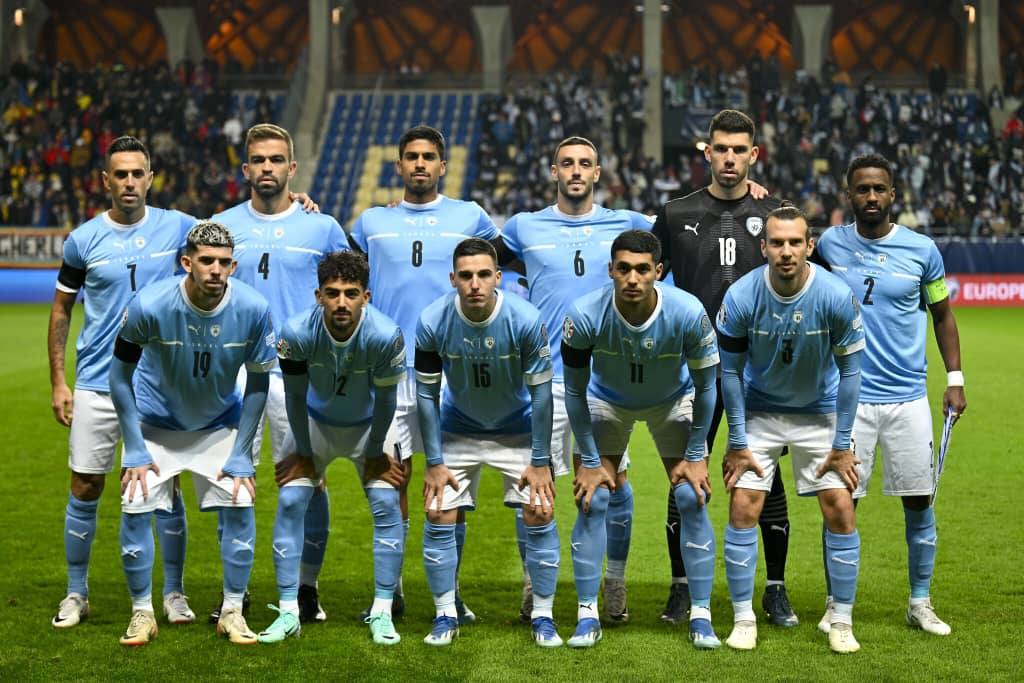Explainer: Why Israel competes in European football despite middle eastern location – A geopolitical perspective
Israel is a state that borders three Middle East nations and the Mediterranean. One would, of course, expect Tel Aviv to feature in Asian football competitions. However, there are dynamics to Israel’s participation – rooted in geopolitics, in competitions overseas.
Israel is regarded European in football and prides itself as one of the few states outside Europe that partners UEFA. Its national football team nicknamed Nivheret Hatchelet Thursday in a UEFA Nations League qualifier held the French football side, Les Blues to a goalless draw and has a match in hand with the Belgian Red Devils – another core European team. This leaves several questions in mind and a flash into the past underscores how politics can influence the fortunes of a state.
Rewind
There have been several twists and turns since the creation of Israel in 1948 in its relations with states inclined toward the “Palestinian Cause”. Since its inception, Israel has been embroiled in conflicts with the Arabs, the first of which erupted in 1948, when thousands of Palestinian families were torn apart and deprived of a viable state of their own. Israel was not created out of thin air – it was an “idea” well executed by Western European powers and the US to the resentment of Arab and Muslim capitals, where its legitimacy as an independent state still raises questions.
On the international level, the State of Israel needed normalisation in politics, economics, and culture to formalise its existence. Football also factored in. This Mediterranean nation – a telescopic one, became a member of the Asian Football Confederation (AFC) in 1956. Israel had it rough in the AFC as its counterparts from the Arab and Muslim worlds declined to compete with it in solidarity with the Palestinians and their quest for statehood. However, in the face of increasing tensions, Nivheret Hatchelet recorded several successes.
The Israeli national football team finished runners-up in the 1956 and 1969 Asian Cup tournaments. It hosted the 1964 edition, which it won in controversial circumstances, as 11 of the 16 teams communicated non-participation in protest.
Political tensions between Israel and Arab capitals deepened through the 1960s and the following decade. The Nation of Israel acquired more territories and defended them with unmatched combat and tactical prowess, but took the hits in other dimensions. Football also bled. In 1974, Kuwait spearheaded a motion to expel Israel from the AFC and succeeded in its quest.
This placed the Israeli national football team in a precarious state without a confederation from where it could compete for spots in international tournaments. For two decades, the Israeli national football team was in limbo – it was forced to play its matches elsewhere until Europe came to the rescue in the 1990s.
In 1991, the Israeli Football Association (IFA) opted for UEFA membership, and the nation was able to better its lots in the international arena following the Oslo Accords of 1993, a pair of agreements between Israel and the Palestinian Liberation Organisation (PLO), which among many other things, provided a framework for peace, where the Israelis and Palestinians can co-exist. The terms of Oslo, it is important to state, failed to stick but accelerated Israel’s ascension into European associations.
The “football bromance” between Israel and Europe’s premier football federation, UEFA became a formal one in 1994.
Between-the-lines
Since then, Israel’s national football team has participated in European competitions, while Israeli club sides, including Maccabi Haifa and Maccabi Tel Aviv, the most successful of all, compete in Europe’s elite club tournaments.
To date, Israel relies on normalisation to thrive, and in the real sense, sports and politics are inseparable bedfellows.







